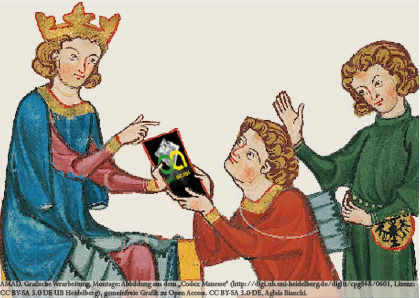AMAD
„Archivum Medii Aevi Digitale - Interdisziplinäres Open-Access-Fachrepositorium und Wissenschaftsblog für Mittelalterforschung‟Zur Einreichung

| Titel: | Voting in the Medieval Papacy and Religious Orders |
| Mitwirkende: | The Pennsylvania State University CiteSeerX Archives |
| Autor*in: | Iain Mclean Haidee Lorrey |
| Beschreibung: | We take institutions seriously as both a rational response to dilemmas in which agents found themselves and a frame to which later rational agents adapted their behaviour in turn. Medieval corporate bodies knew that they needed choice procedures. Although the social choice advances of ancient Greece and Rome were not rediscovered until the high middle ages, the rational design of choice institutions predated their rediscovery and took some new paths. Both Ramon Lull (ca 1232-1316) and Nicolaus of Cusa (a.k.a Cusanus; 1401-64) made contributions which had been believed to be centuries more recent. Lull promotes the method of pairwise comparison, and proposes the Copeland rule to select a winner. Cusanus proposes the Borda rule, which should properly be renamed the Cusanus rule. Voting might be needed in any institution ruled by more than one person, where decisions could not simply be handed down from above. Medieval theologians no doubt believed that God’s word was handed down from above; but they well knew that they often had to decide among rival human interpretations of it. The Church faced its own decision problem every time a new Pope needed to be elected. Bodies not directly in the hierarchy of the Church had to evolve their own decision procedures. The chief such bodies were commercial and urban corporations; religious orders; and universities. Voting in the Medieval Papacy and Religious Orders 1. |
| URI: | https://www.amad.org/jspui/handle/123456789/78421 |
| Quelle: | http://citeseerx.ist.psu.edu/viewdoc/summary?doi=10.1.1.96.9597 http://www.nuffield.ox.ac.uk/Politics/papers/2006/mclean02.pdf |
| AMAD ID: | 568471 |
| Enthalten in den Sammlungen: | BASE (Bielefeld Academic Search Engine) General history of Europe |

